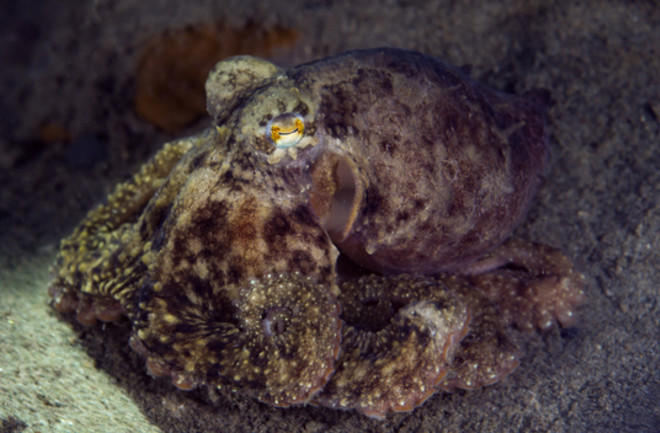A neuroscientist and a marine biologist got together and decided to give octopuses MDMA. It sounds like a joke, but it really happened, and the results reveal something unique about our neurocircuitry and human evolution.
Eric Edsinger is an octopus researcher at the University of Chicago who recently helped sequence the genome of Octopus bimaculoides—the California two-spot octopus. Like most octopuses, this color-changing cephalopod is asocial, meaning it likes to be alone most of the time, unless it’s trying to mate.

